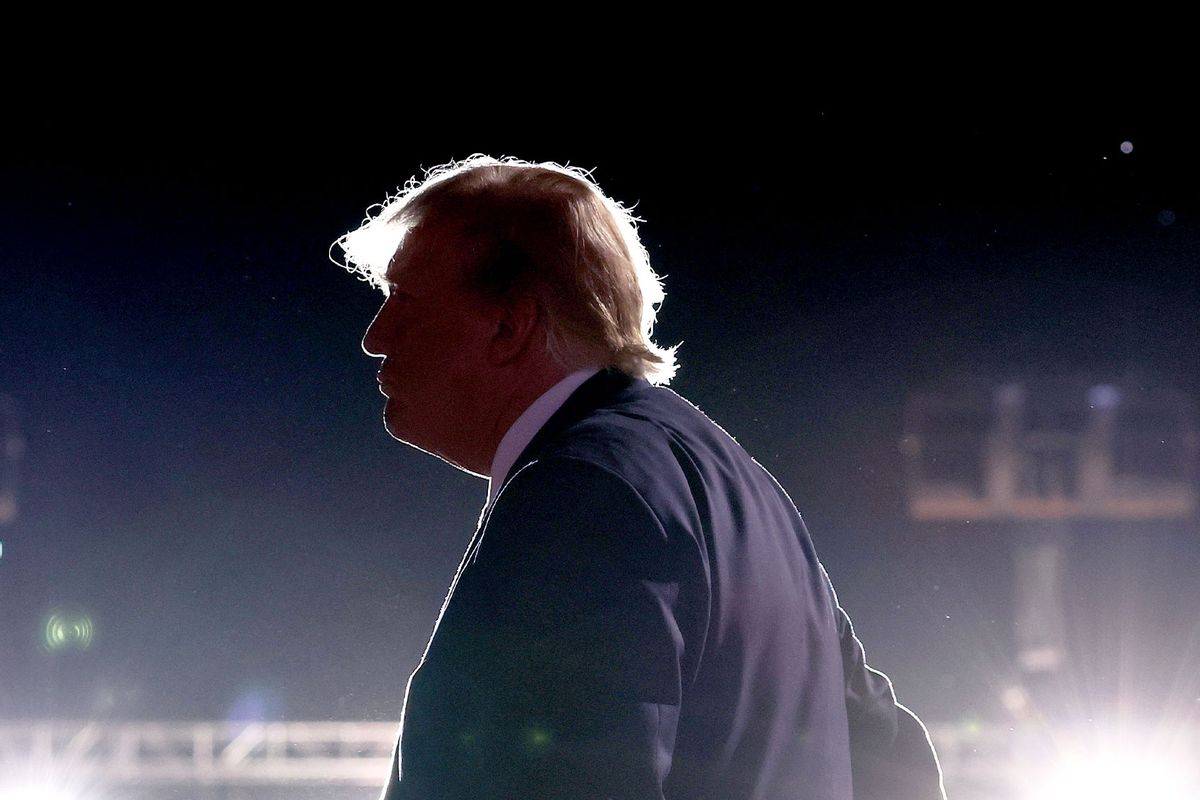Legal experts raised concerns after the forewoman of the Georgia special grand jury that investigated former President Donald Trump's efforts to overturn his loss gave multiple media interviews revealing details about the probe.
Forewoman Emily Kohrs told The New York Times that the special grand jury recommended multiple indictments in the investigation.
"It is not a short list," she said, adding that "you're not going to be shocked. It's not rocket science."
In an interview with the Associated Press, Kohrs revealed details about witness testimony, including witnesses that received "immunity deals."
Kohrs revealed that the grand jury heard calls Trump made that have not been made public in an interview with the Atlanta Journal-Constitution.
"It is amazing how many hours of footage you can find of that man on the phone," she said.
When a reporter told her that Trump claimed "total exoneration" by the grand jury, Kohrs burst out laughing and rolled her eyes.
"Did he really say that?" she asked. "Oh, that's fantastic. That's phenomenal. I love it."
Kohrs also appeared on TV, telling NBC News that the special grand jury recommended more than a dozen indictments.
"There are certainly names that you will recognize, yes. There are names also you might not recognize," she told the outlet.
In an interview with CNN, Kohrs urged Fulton County District Attorney Fani Willis to take "decisive action" in the case.
"Personally, I hope to see her take almost any kind of decisive action, to actually do something," Kohrs said. "There are too many times in recent history that seem to me like someone has gotten called out for something that people had a problem with, and nothing ever happens."
Georgia law bans grand jurors from discussing deliberations but not other parts of the case, including the redacted special grand jury report released by the court earlier this month.
But former federal prosecutor Renato Mariotti warned that it is "still a very bad idea" for Kohrs to disclose the details in the media and "may carry legal risk for her." He added that Kohrs' media appearances "will likely provide Trump and others with arguments to challenge the indictments."
"Yes, she *can* reveal this but she seriously needs to stop. Enough with this. The report is still sealed. The DA is still making a decision," tweeted attorney Bradley Moss, adding that Kohrs' statements may be "tainting the trial jury pool" and could aid Trump's "efforts to move the case out of Fulton County."
Want a daily wrap-up of all the news and commentary Salon has to offer? Subscribe to our morning newsletter, Crash Course.
Former federal prosecutor Elie Honig said on CNN that Kohrs' media interviews were a "horrible idea" and predicted that "prosecutors are wincing" watching her comments.
"It's a prosecutor's nightmare," he said. "Mark my words, Donald Trump's team is going to make a motion if there's an indictment to dismiss that indictment base on grand jury impropriety. She's not supposed to be talking about anything, really. But she's really not supposed to be talking about the deliberations. She's talking about what specific witnesses they saw, what the grand jury thought of them. She says some of them we found credible, some we found funny. I don't know why that's relevant, but she's been saying we found this guy funny or interesting. I think she's potentially crossing a line here. It's gonna be a real problem for prosecutors."
Conservative attorney George Conway, a frequent Trump critic, agreed that Kohrs' interviews were "not helpful" but predicted that they would not have a material effect on the case.
"The evidence is the evidence," he told MSNBC. "This isn't even the grand jury that is going to pass on the indictments. This is just, this was a grand jury designed to prepare a report."
The special grand jury does not have indictment powers. Instead, Willis can take their recommendations and present the evidence to another grand jury that will then vote on indictments.
"I don't think there's any argument that the defendants have that they were prejudiced by this interview," Conway said. "She didn't release that much information. The fact of the matter is most of the evidence, 99% of the evidence we know about… There's going to be no argument that the jury, the ultimate of decider of fact, is prejudiced in any way. Just no. There's just nothing. It's not going to help the defendants any."
Read more
about the Georgia grand jury probe



Shares